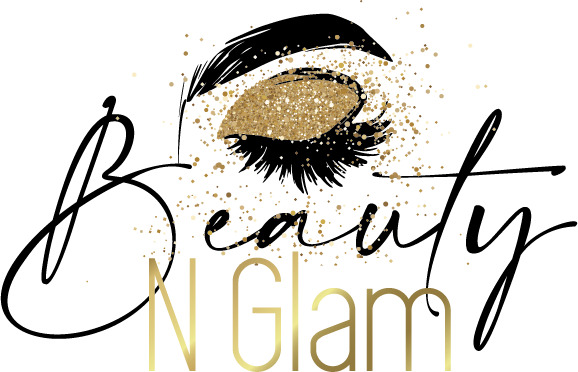Resveratrol
Resveratrol
If you're someone who likes to wind down with a glass of red wine, you might be familiar with one notable ingredient found in the skin of grapes: resveratrol. Studies have credited this potent antioxidant for having many health benefits as well as positive effects on the skin.1
But can that glass of pinot noir serve as a lovely addition to you skincare just as it does for your Friday night plans? Or is there a more effective (albeit, less enticing) way to reap the skin benefits of resveratrol? Ahead, board-certified dermatologists Ava Shamban, MD, and Michele Green, MD, answer that burning question as well as dozens of others you might have about the antioxidant.
Scroll below to find out everything there is to know about the benefits of resveratrol.
RESVERATROL
TYPE OF INGREDIENT: Antioxidant
MAIN BENEFITS: Fights aging, protects the skin, and improves the overall appearance of skin.
WHO SHOULD USE IT: Green says that, in general, anyone who has sun damage can use resveratrol, regardless of their skin type.
HOW OFTEN CAN YOU USE IT: According to Green, it's safe to use on a daily basis as long as you know how your skin responds to the antioxidant.
WORKS WELL WITH: Most other powerful antioxidants, like ferulic acid.
DON'T USE WITH: Neither dermatologist is aware of any ingredient that will deactivate the function of resveratrol.
What Is Resveratrol?
Resveratrol is a naturally occurring antioxidant that can be found in the skin of grapes, peanuts, all berries, and even dark chocolate. It comes in a powder, pill, or liquid form and can be found in a variety of skincare products, such as serums, creams, moisturizers, and supplements. Resveratrol is part of a group of compounds called polyphenols. As explained by Shamban, "These polyphenols act as key antioxidants, which serve on the front line as the 'generals' gathering the troops to protect the cells against damage that leads to cellular aging." Shamban says that in general, most OTC forms of resveratrol are fully stable, but she still recommends using products that are packaged in airtight containers (like a pump) and storing the products in a cool, dark place.
Benefits of Resveratrol for Skin
When the ingredient is applied topically, the main functionality of resveratrol helps to protect the skin's surface. With that said, it does have a few other benefits:
- Protects the skin: Resveratrol is able to interrupt negative environmental influences as well as protect the skin from UV damage.1 "Our skin is the largest organ in the body, and it functions as your body’s first line of defense against harmful microorganisms," says Green. "Using an antioxidant such as resveratrol helps boost your skin’s natural barriers so that your skin looks and feels smoother and healthier."
- Slows aging: Green says resveratrol works on a cellular level in order to fight the process of aging by stimulating healthy cell proliferation. As Shamban explains, "Resveratrol forms complex molecules with certain metal ions, inactivating their ability to form free radicals, and therefore improving cellular function and supporting fibroblasts, along with the creation of healthy collagen. This combination one-two punch makes resveratrol highly effective in combating the damaging effect of free radicals that leads to skin aging."
- Reduces redness: Shamban says resveratrol contains key skin-calming properties that help minimize the look of redness and inflammation.
- Evens skin: Green says not only does resveratrol brighten and even your skin tone, but it also works to improve the overall texture of your skin.
- Hydrates the skin: Green also adds that resveratrol can hydrate your skin and prevent it from becoming dry.
Side Effects of Resveratrol
"As far as we know specifically for skin, no studies have discovered negative side effects, even if or when it is taken in larger doses by transdermal delivery or ingested," Shamban says. However, she adds that when taken as a supplement, it might interact with blood thinners and NSAID medications, like aspirin and ibuprofen. In these cases, Shamban always recommends seeing your primary physician, dermatologist, or internist before starting on a new supplement or skin routine.
How to Use It
Shamban recommends applying resveratrol as a part of your nighttime skin routine. "Quality sleep, in general, is critical for healthy-looking skin," Shamban explains. "And with antioxidants, particularly resveratrol, we can capitalize on the heightened nighttime repair function to maximize or boost antioxidant production within the skin cells, and even more so, we're also able to trigger fibroblast cells to in fact make more collagen."
The step of your routine during which you should apply the resveratrol depends on the type of product you’re using. Green says for serums, apply it after you cleanse, or if you use a toner in your skincare routine, then you’d apply it after that step. If you’re using resveratrol in a moisturizer, then you’d apply it right after cleansing and toning, twice daily, mornings and evenings.
Other Forms
To reap the most cholesterol and heart benefits, Shamban suggests turning to powders, pills, or liquids—or better yet, the actual foods—that contain resveratrol. "Internally and in terms of health benefits, resveratrol is also shown in testing to be anti-cancer and both a cardioprotective and neuroprotective ingredient," she explains.
For skin benefits, on the other hand, resveratrol is more effective when applied topically. "The truth is, ingesting powder, pill, or liquid—you'd need to drink hundreds of cases of cabernet a day to get through the digestive system to really get enough of the resveratrol needed to really reap skin benefits to have any effect on the visible signs of photoaging or other epigenetic aging factors, including environment and stress," Shamban explains. So while wine can be beneficial, instead of drinking your way to better skin, Shamban suggests incorporating the ingredient topically through skincare to effectively boost skin's health.
